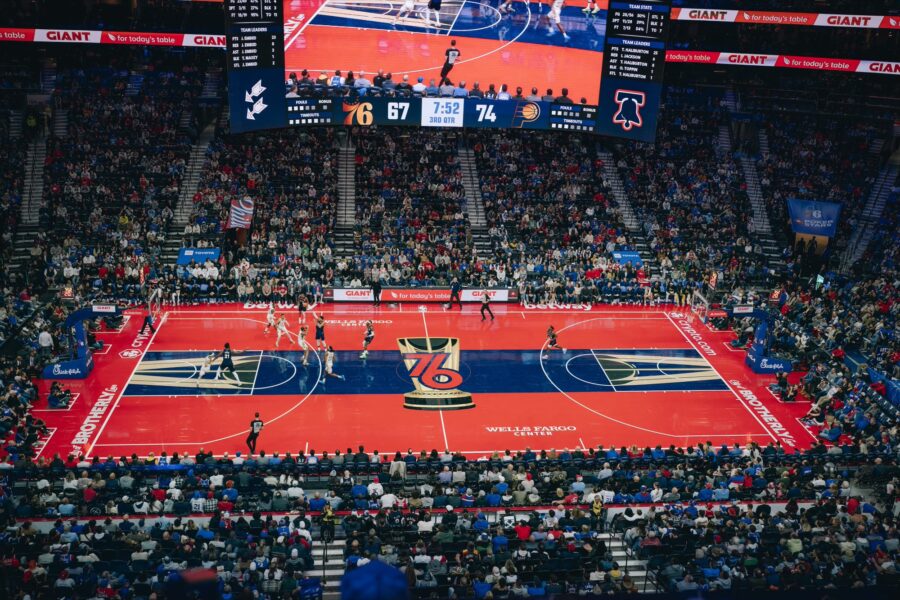
On December 9th, the NBA concluded its first-ever in-season tournament with the Los Angeles Lakers defeating the Indiana Pacers 123-109 in Las Vegas. On the heels of the win, the Lakers were awarded the NBA Cup, and LeBron James was named the tournament’s MVP for his play over seven games that made up their tournament schedule.
All thirty NBA teams participated. There were six groups comprised of five teams. Each team in the given group played the other four teams once. That was called the group play stage of the tournament. The team with the best record in each group advanced to the knockout round. The next best record of one team in each conference also went, accounting for eight teams in the knockout round. The four teams that won in the knockout stage traveled to Las Vegas for the semifinals and championship games, mimicking the NCAA Final Four, one venue used to determine a champion over three days.
“I want to thank all of the players in the league and the coaches, of course, the teams, for embracing this new concept,” NBA Commissioner Adam Silver said. “I know it doesn’t come without challenges. There’s no doubt there are some things that we are learning this time through. Overall, we are thrilled with the interest we’ve seen this season.”
The tournament had its challenges. The four games played in the group stage went toward each team’s regular season record. The knockout round and semifinal games counted as well. Teams that did not make it out of group play were assigned two opponents and those games were played last week while the tournament was still going on. Everyone played six total games except the Lakers and Pacers. The championship game will not go toward the regular season standings, but it does have historical value.
“This is special for us, just winning the inaugural In-Season Tournament,” Anthony Davis said after contributing 41 points and 20 rebounds in the championship game. “But we want to also win the same thing in June. It’s a step in the right direction, but even though it’s a big performance, it’s another game and we’ve got to continue to get going starting back on Tuesday.”
Elements of concern surrounding the event include the bold, colorful courts designed solely for in-season tournament play. The intention behind the courts’ design was to make real life look like a popular video game. The courts received mixed reviews.
“I’m a big advocate of the colorful courts,” Silver said. “Obviously, we want to make sure the players have confidence in them and the type of paint used isn’t more slippery. We dealt with those issues, but I want to ensure they are not distracting.”
Another concern was using the point differential as a tie-breaking tool. Multiple people scrutinized Joel Embiid for launching a three-point shot at the buzzer in their initial tournament game against the Pistons. Detroit players and coaches were upset, viewing the shot as unsportsmanlike since the Sixers were up 114-106. Embiid knew point differential was a tiebreaker; others needed to pay closer attention to the rules surrounding this new event.
“That concept is well known in international basketball and FIBA and Olympic competition,” Silver explained. “I’m not ready, necessarily, to move away from it, but if ultimately there’s going to be a sense, particularly from our American fans, that somehow it is an indication of poor sportsmanship, that’s not a good idea for us to be doing it.”
The feeling is the in-season tournament is here to stay, but the league will tweak aspects of it. The prize money, $500K for each player on the winning team and the head coach, is an incentive even for those already well compensated. Bragging rights also play a role in the competitors wanting the tournament to return next year.
“We thought it was a cool idea,” Sixers head coach Nick Nurse said, despite his team not advancing to the knockout round. “Our guys talked a lot about wanting to advance in the tournament. We didn’t, so we must find another positive from the experience.”
Nurse’s players were equally disappointed that their participation in this inaugural event was short-lived.
“One hundred percent,” Tobias Harris said when asked if he and his teammates were upset about not moving on to the knockout round. “Say what you want about the in-season tournament, but as players, we are competitors. And while it was a regular season game, it was the kind of game that prepares you for playoff basketball. We didn’t handle our business tonight (Cleveland) or against Indiana, but we absolutely wanted to advance.”

